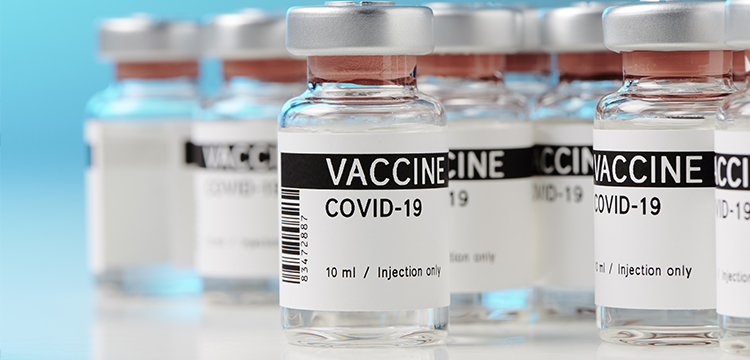In a week when the first batches of Pfizer/BioNTech vaccines were delivered to the UK for deployment a story from a long way off in India caught my eye. The country has the world's largest vaccine manufacturer, the Serum Institute of India. They have been involved in the development of the vaccine produced by the University of Oxford and AstraZeneca which is currently being reviewed by the Medicines and Healthcare products Regulatory Authority (MHRA), the UK regulator that is ultimately responsible for giving the green light (or otherwise) for new vaccines in the country. The Serum Institute has a licence to produce the vaccine in India once approval is given. It has already in fact made some 40 million doses. Although the vaccine in trials has a lower overall success rate than the two others currently available (or nearly available) in Europe and North America, namely the Pfizer/BioNTech and Moderna vaccines, at around 70% it is still a significant advance. And trial results (which are at this stage subject to verification and peer reviews) suggest that amongst those involved in the study who did become infected none were hospitalised. There are other advantages to the Oxford/AstraZeneca vaccine such as its low cost and the fact that it can be stored in normal fridges rather than requiring freezing at -80 degrees centigrade, so it is potentially an attractive product.
So what ethical questions you might ask does this pose? The answer is that the Serum Institute is proposing to start selling the drug privately in March or April next year. This contrasts the approach taken by those producing the Pfizer/BioNTech vaccine who have announced that the producers of the vaccine have no plans to market it privately in the 'foreseeable future'. Although the Serum Institute will initially provide vaccines to the Indian government, this plan to market it privately shortly afterwards puts it out of step with others.This poses a number of serious questions around the availability of the vaccine to those least able to afford it. India is a country marked by serious economic extremes. Many people are living in poverty although statistics suggest that the situation has improved significantly in recent years. The well-known Brookings Institution, based in Washington DC and specialising in societal issues, suggested back in 2018 that about 5% of the Indian population was living in extreme poverty. At one stage the country with more people in this category than any other, in that year Nigeria assumed that unwelcome claim to distinction. This is a big improvement but it still leaves a lot of people in the 'extreme poor' category in India, a country of some 1.4 billion people. Further, the pandemic will have probably made this situation worse; the hardest affected are the poorest people who have little access to the state handouts that have been used in other economies.
These are the very people who will struggle to pay even a small charge for a vaccine. By the same token, they are also the citizens who are most exposed to the negative health impacts of the virus. Living in basic and cramped conditions, often either in packed areas that are little more than shanty towns or in remote rural locations – both of which typically have basic healthcare facilities – their prospects in the face of Covid are often dire. Not for nothing does India have some of the worst aggregate numbers for Covid impacts in the world, with around 10 million cases and over 140,000 deaths at the time of writing. Whilst per capita India does not rank as badly, these are still deeply disturbing figures.
This is one cause for concern around the private sale of vaccines. Another is that at the moment there is simply not enough vaccine to go around. Developing a prototype vaccine is one thing – albeit a massive achievement in its own right – but producing it in the hundreds of millions of doses necessary quite another. Bear in mind too that with the vaccines so far developed it appears to be necessary to allocate at least two doses to each person benefiting from it. That is not to mention the fact that we are not yet clear how long the health impacts of this initial two-dose regime will last and that it may be the case that a 'booster' top-up is required annually. Allowing 'queue jumpers' who can afford to pay to access the vaccine may mean that others who are more at risk are not able to do so, even if we assume they can raise the money required.
The stance taken by the Serum Institute raises ethical questions not just for India but also globally. The vaccine is a limited international resource and not having a clear global policy for how it should be deployed risks consigning poorer countries who do not have access to the vaccines to devastating impacts. It is as clear a case as you can get of where international cooperation is necessary but the trend in recent years towards unilateral nation-based approaches means that it is more difficult than it has been for quite a while to achieve this. In the meantime, those worst affected – often the world's poor and underprivileged – continue to suffer from a situation that they have done nothing to cause and can do little to affect. Charging them for access to basic and potentially life-saving healthcare, or depriving them of their opportunity to benefit from a limited resource because other less needy citizens have bought up a dose or two of the vaccine, appears to be the last thing we should be contemplating at the moment.
Wayne Bartlett is an author for accountingcpd. To see his courses, click here.

You need to sign in or register before you can add a contribution.